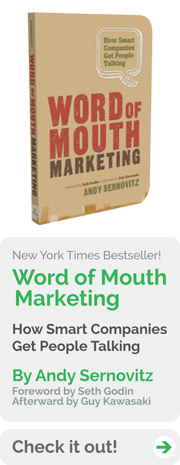4:00 — Jim Lovelady introduces Affinitive‘s Warren Ackerman.
4:01 — Warren covers the background of this case study, which focuses on books for teens. The program features 30-45 books published each year. Authors involved include Judy Blume, Philip Pullman, and Robin Brande.
4:02 — Warren shares the general objectives behind the program, which include building awareness for Random House and teen titles, building brand advocacy, and increasing CRM registrations in Random House’s database.
4:03 — Warren: So what is the program? It’s a managed customer community. Anyone can join, and it’s currently got about 57,000 registered users.
4:03 — Warren: The program features incentives, point systems, advanced copies, and social currency. To users, it’s like a social network specifically around Random House’s products.
4:05 — Warren compares the corporate site and the teen community site, which design-wise is pretty seamless between the two.
4:06 — Warren: User generated content is a big part of the engagement.
4:07 — Warren: One of the big parts of the program is connecting consumers directly with the authors — and they really deliver on it. Over the past year, we’ve had 40 different authors come in and engage with consumers.
4:07 — Warren shares examples of email newsletters, which are also a component to the program.
4:08 — Warren’s lessons to drive advocacy and WOM:
1. Insider access
2. Education
3. Community
4. Advocacy Tools
4:08 — Warren says that education is important in driving WOM, because it gives the consumers confidence to go out and talk about the products.
4:09 — Warren says that when fans discover a community of similar fans, it reaffirms their love of a brand or product. It helps show them that they’re not alone and that they can be part of a bigger movement.
4:10 — Warren dives into the content and the engagement behind the program. Warren says that every week, a new author comes in to connect.
4:11 — Warren: A lot of them are first-time authors, and you might think that the authors aren’t really into it, but they are.
4:12 — Warren shared a few ideas on how they get people involved in the story lines, such as asking members to share stories of their personal experiences that relate to a subject from the book, or to create content for characters or elements from the books.
4:12 — Warren: If you have information that you know others don’t know, you’re going to want to share it — this is a key component to word of mouth.
4:13 — Warren covers some of the other elements from the program, such as product reviews, forum posts, and event listings (such as book signings).
4:15 — Warren shares stories of what these conversations mean to the bottom line, and offers an example of how one fan learned about a book through the program, gave a book report on it a week later, and then talked to her school’s library who ended up ordering a bunch of them.
4:16 — Warren: 79% of community members have said that membership has made them more likely to make a purchase.
4:17 — Warren’s 2009 results of the program:
– 37,000 WOM conversations reaching 163,000 consumers
– 96,000 member and non-member visits
– 26,500 engagement hours
– 3,000 items of user generated content (photos and videos)
– 17,000 reviews and comments
Q&A
Q: You’re dealing with minors, so what safeguards do you have in place?
A: It’s never been a problem for us, but certainly before we started, it’s something we thought about. Essentially, the community has an age minimum of 13 to meet laws and regulations. We haven’t really had any problems. It’s just been a really great experience for users, and they’re going to go to whatever lengths it takes to defend it.
Q: How do you feel about creating an internal community versus joining an existing one?
A: It’s an ongoing debate. It largely depends on the objectives of the brand. One of Random House’s core goals was owning the data and building an email database. I think for the most part it just really depends on what the goals are. We have done stuff with Facebook, but we’ve mostly looked at those as entry points for further engagement.
Q: How do you get your authors involved?
A: They’re all happy to do it, surprisingly enough. Part of it is that many of them are first-time authors. But it’s actually part of the very beginning of their relationship with the publisher, it’s something they know about from the beginning. And becasue they own the platform, they have lots of flexibility for adding or taking away parts of the program.



Trackbacks/Pingbacks
[…] Random House — with Affinitive’s Warren Ackerman […]